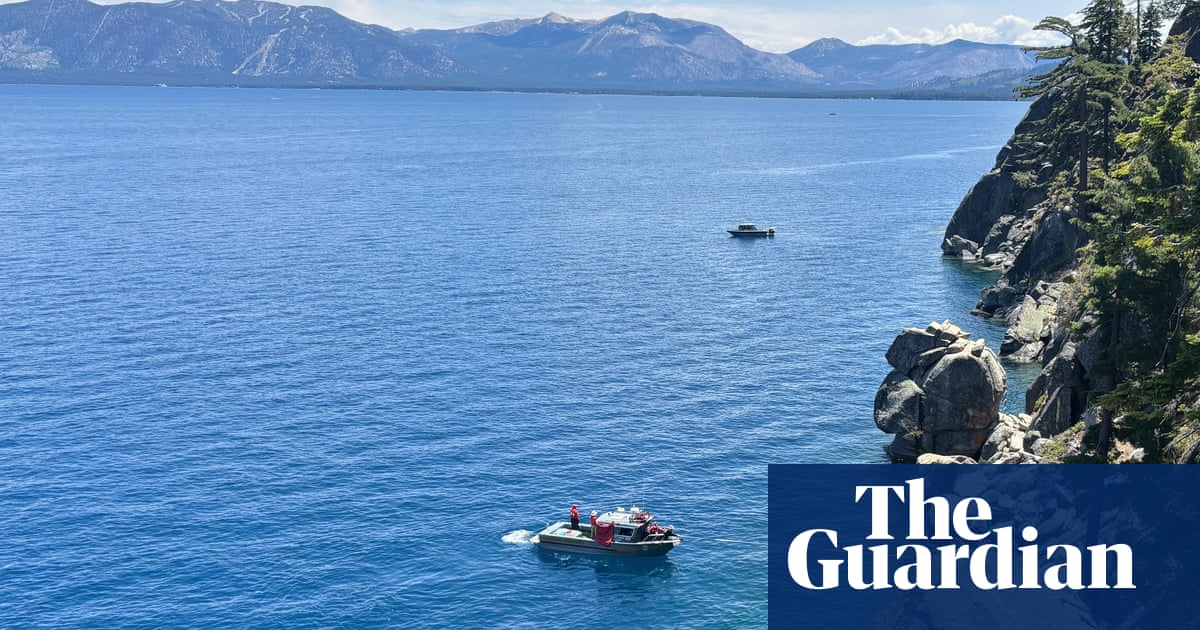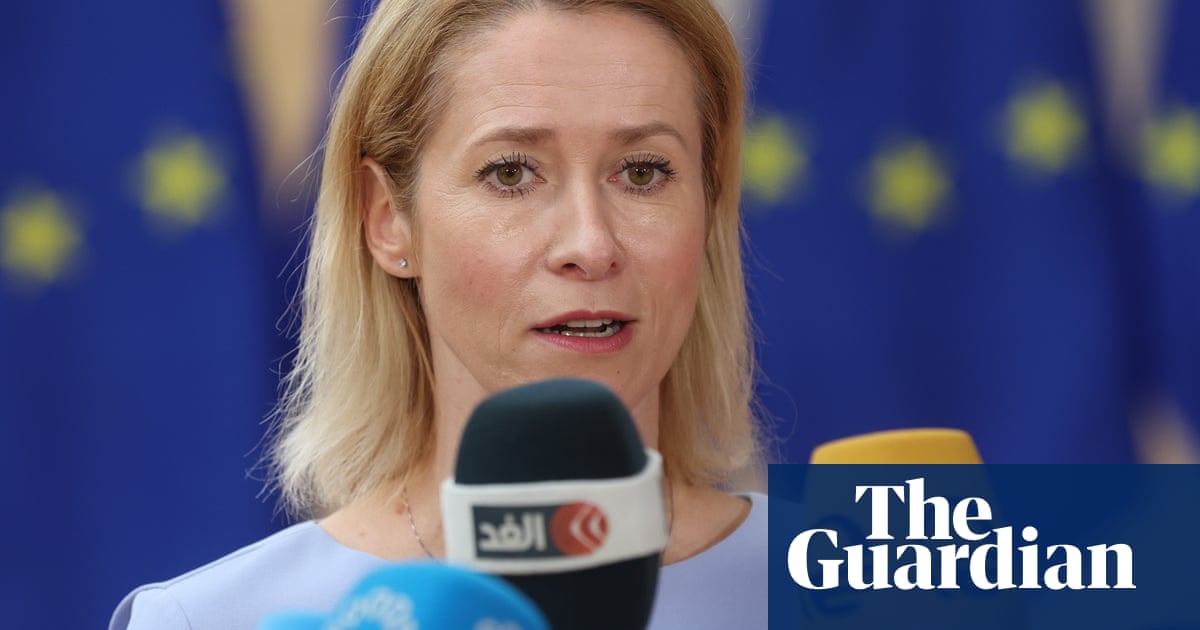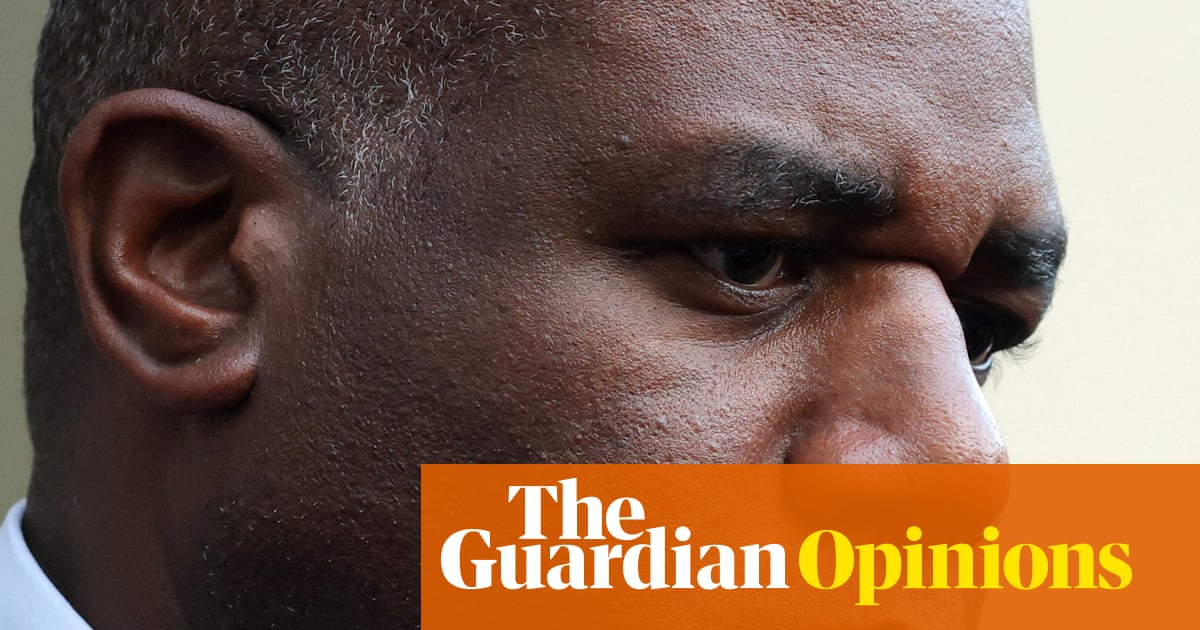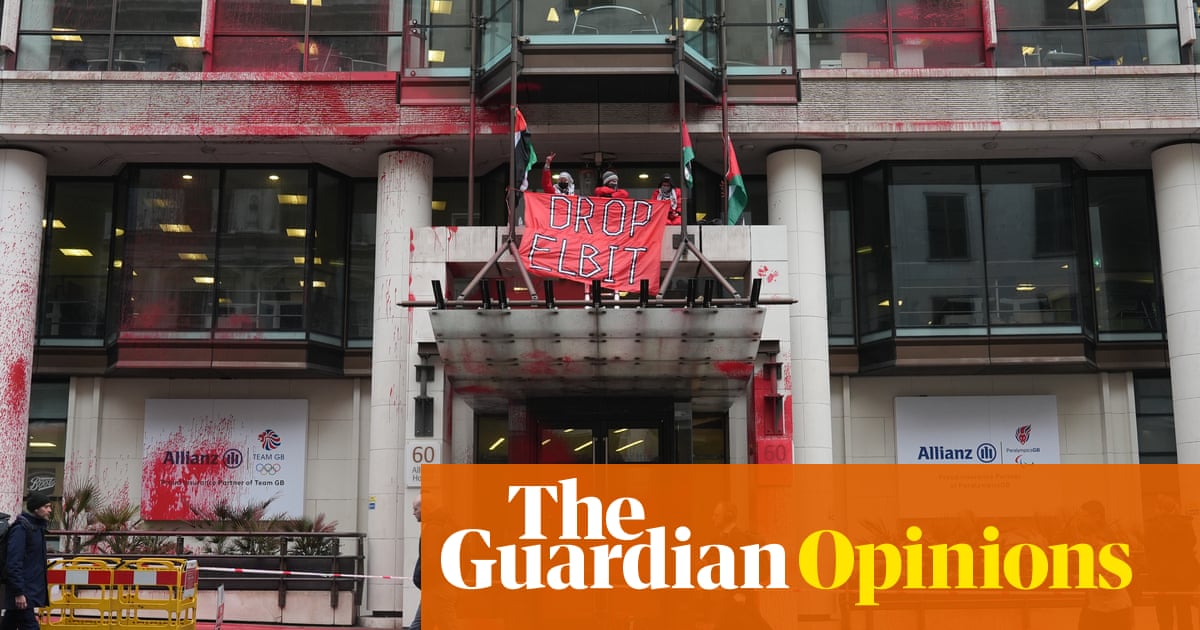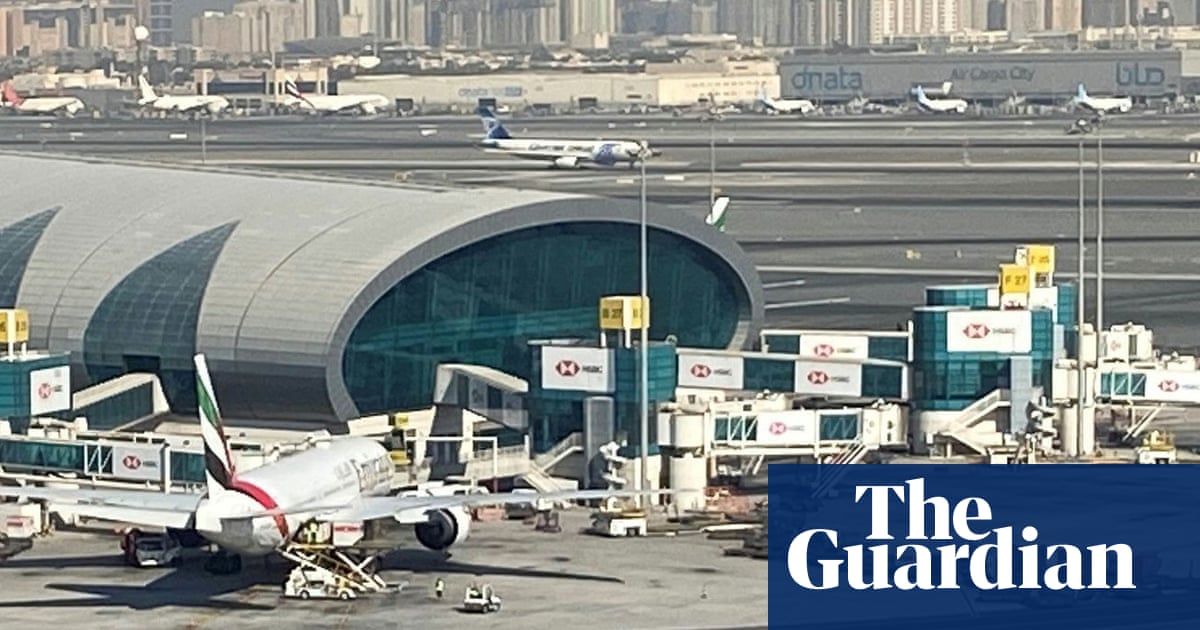Joy Ebaide was riding her motorbike along a deserted dirt road in rural Tanzania when a black mamba, Africa’s deadliest snake, lunged at her. “It was about two inches away from me, and that’s an experience I’ll never forget,” she says.
Encountering a highly venomous snake was a heart-stopping moment, but it did not put her off travelling. If anything, it made her more determined, and left her feeling that “impossible is nothing”.
Ebaide, 32, spent five months on the road, from March to July 2024, riding solo from Mombasa on the Kenyan coast to the Nigerian capital, Lagos, on a Tekken 250cc “adventure” motorbike, which can handle rough roads. Two years earlier she had driven alone across east Africa after converting a minivan into a “tiny home on wheels” and becoming a full-time “vanlifer”.
Now she is about to complete her third big adventure: another solo motorbike trip, this time from Lagos to Morocco. She is due to arrive in Rabat this month.
“It’s been a tumultuous experience, but it’s been the highlight of my existence,” she says.

Ebaide has documented all three adventures on social media, from morning routines in the van to navigating her motorbike through the traffic-clogged roads of Kampala, and sharing her best and worst moments.
“When you think of Africa you are probably thinking of safaris, wildlife and dirt roads; well, today we are flipping the script,” she says in one YouTube video. “I’m about to tell you my top five African countries with the best roads … smooth, modern, luxurious roads that you can drive on without spilling your tea.”
Along the way, she has also alerted her 528,000-plus followers across Instagram, TikTok, Facebook and YouTube to the challenges of travelling with a Nigerian passport.
In one of the most popular YouTube videos from her current trip, she describes crossing the border from Benin into Togo as “an absolute nightmare”.
“The whole experience felt like I was trapped in a system designed to bleed travellers dry,” she says, arguing that borderless travel is needed for Africans to move around their continent without hindrance.
Nigeria is one of 12 countries in the Economic Community of West African States (Ecowas), a regional trade and economic bloc that allows visa-free movement for citizens of its member states. Beyond west Africa, Nigerians require visas to enter 26 countries in Africa, after Kenya became visa-free for Africans in January 2024. But, as Ebaide found, border crossings do not always run smoothly.
“I know many Africans don’t travel around Africa because of the border issues. But I’m an exceptional woman. I’m kind of known on the internet for border madness and being feisty because I want to show people, especially those with the Nigerian passport, that travelling [within Africa] is possible,” she says.
The Nigerian passport is considered weaker than those of many other African countries, ranking 91st on the Henley global mobility index – on a par with Ethiopia, and only slightly above conflict-ridden or politically unstable countries, such as Sudan, the Democratic Republic of the Congo, and Libya. By comparison, South Africa ranks 48th on the index and Kenya 68th.
Ebaide is not alone in sharing her frustrations on the road. She is one of a growing number of Nigerian female adventurers who are as vocal about the difficulties of travelling as they are about their love of experiencing new cultures.
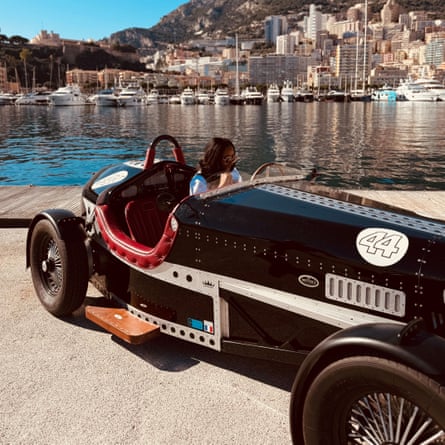
Munachimso Osisiogu, a travel influencer, started educating people about travel requirements and visa-free countries for Nigerians after her 2022 post about Rwanda’s policy went viral. She says she has helped more than 100 people secure visas across Africa and the Middle East. Initially, she offered free advice; now she charges a fee of 50,000 naira (£25) for consultations.
“It is very hard to travel with a Nigerian passport, especially in Africa. It costs less to go from Lagos to Paris than to Senegal,” says Osisiogu. “Many Nigerians want to travel and go back to [Nigeria]; some of us don’t want to relocate. Nigerians are not even the top five people who overstay their visas – travel should be accessible.”
Travelling outside the continent can be even more frustrating and expensive, requiring proof of funds, airline tickets and hotel booking in advance, with no guarantee of visa approval – and no refunds.
Last month, Alma Asinobi, a 26-year-old content creator, finally set out to break the Guinness world record for taking the shortest time to visit all seven continents in an effort to raise awareness of the difficulties of travelling with a low-mobility passport after facing a series of costly bureaucratic hurdles during her preparations.
“I’m trying to keep it together,” she tweeted, “but it’s really sad when I remember that I could have done this trip much earlier in the season – better weather, more options in case of cancellations etc – but more than half of the visas I needed were either refused or hadn’t been approved yet.”
At 71 hours, the trip took Asinobi seven hours more than the 64-hour record set by an American, Johnny Cruz Buckingham, after Asinobi was prevented from boarding her flight from Dubai to Perth in Western Australia – due to visa issues.
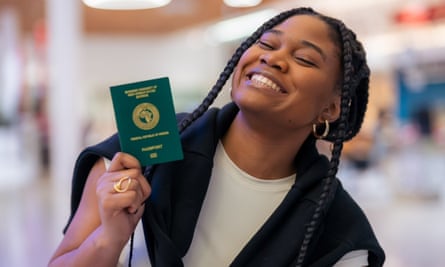
“I don’t have a problem with getting visas; it makes sense to see yourself as a guest in anybody’s country. However, there are some ways that the authorities treat people who have to get visas [at consulates], especially Africans. You have to queue at ungodly hours of the day to get a visa,” Asinobi told the Guardian before embarking on her record attempt.
Pelumi Nubi, who in 2024 became the first African woman to drive solo from London to Lagos, says that as a dual-passport holder (British and Nigerian), she can use the most convenient one depending on where she is travelling to. This helps prevent the additional scrutiny that Nigerian passport-holders usually experience.
“There is a striking difference when you travel with a Nigerian passport. It’s just that extra effort that you have to pay the price [for],” Nubi says.
“For the London to Lagos trip, I used my British passport all the way to the Gambia. Then I switched to my Nigerian passport once I got into the Ecowas zone, which was visa-free.”
As well as helping others navigate border requirements, Nigeria’s female travel influencers are raising awareness of the risks of solo travel.
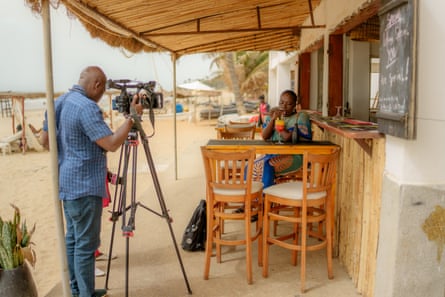
Nubi says: “The reality of our daily life as women is amplified because you’re travelling in a foreign land, away from family and friends that could protect you. You have to put extra security that I feel a man doesn’t even think about.
“I have to wear a fake wedding ring sometimes when I’m travelling to reduce the constant sexualisation and unwanted attention.”
Asinobi adds: “The trip itself is a victory. Because historically, travelling as a black woman has an additional layer of complexity. Women have done a lot of big things, but you hardly find women doing audacious things without any pushback.
“I just want more women to know that you can do things, and it’s OK whether it works or not: just do things.”
That can-do attitude, plus the thrill of the open road and experiencing new cultures, outweighs the challenges these influencers have faced. This week sees the launch of One Week In … , a travel show presented by Nubi on Africell’s YouTube channel billed as “an African telling the African narrative of travel in the continent.”
Omolewa Adesuyi, 34, set off on a solo ride from Lagos on 16 March, and plans to spend a month riding her motorbike to Cameroon, Congo-Brazzaville, Angola, Namibia and South Africa. For her, travel is a means of helping create more female representation in motorcycling.
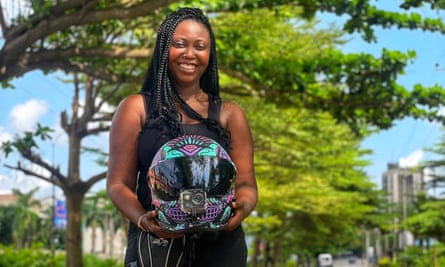
“They say [motorcycling] is a man’s sport, but now we see a lot of women riding motorbikes as well. We’re changing narratives, letting the future generation of women know that you can do whatever you set your heart to do, even if it’s overcoming stereotypes and visa challenges.”

 2 months ago
62
2 months ago
62


